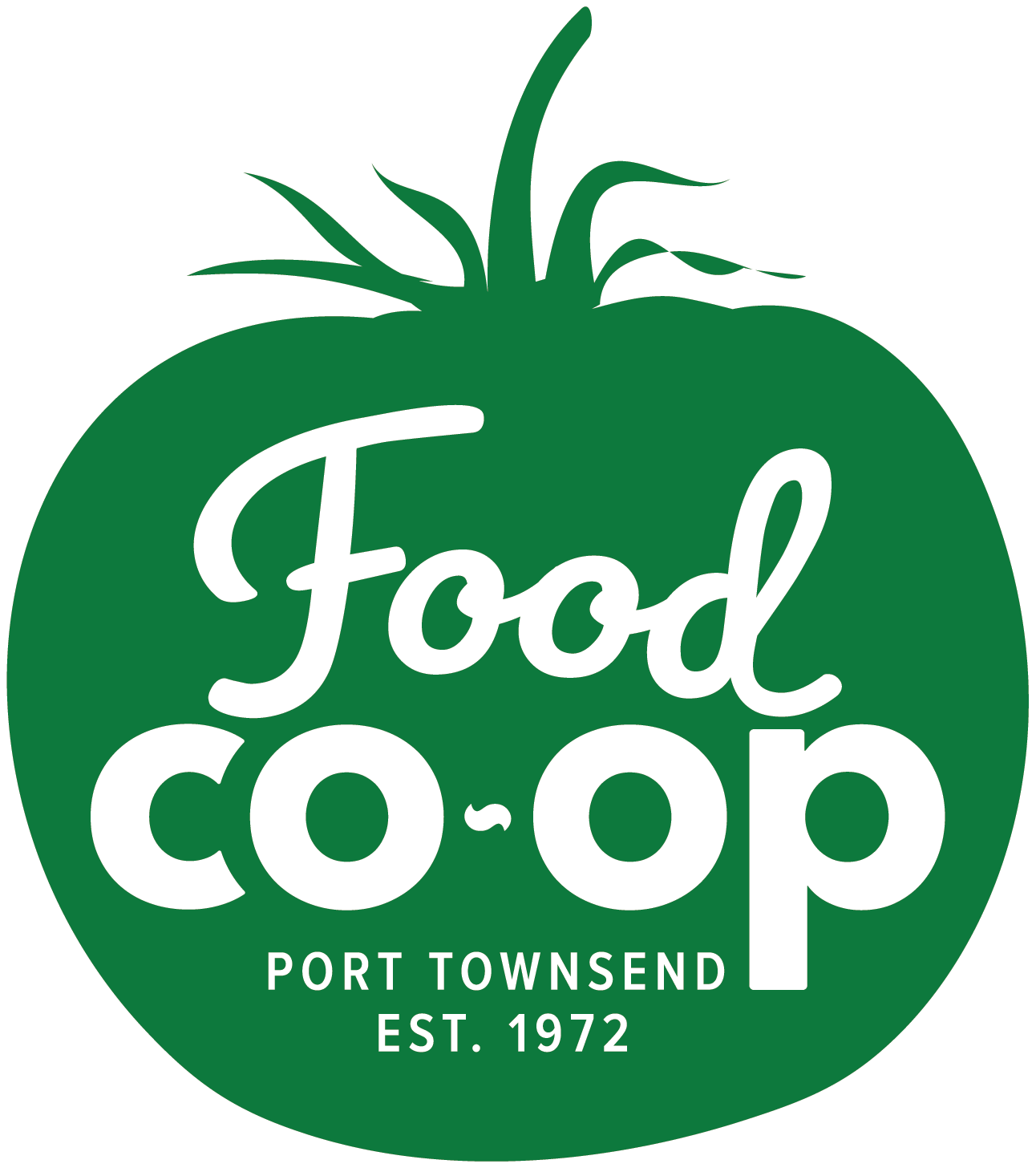The Co-op Farmer Fund: Mystery Bay Farm
The Food Co-op Farmer Fund collects donations from shoppers and then divides those funds equally between three local farms each quarter (the farms rotate each quarter). You can donate any amount online at https://www.foodcoop.coop/change-for-change or when you check out at the Co-op—just say you want to donate to the Farmer Fund or Change for Change. The farmers use the funds to provide their food to the Food Bank, the schools, or to subsidize CSAs, etc.
This fall/winter, our three farms are Mystery Bay Farm, Solstice Farm, and Kodama Farm and Food Forest. Keep checking back for blogs on each of the farms.
Mystery Bay Farm, Marrowstone Island
At Mystery Bay Farm, Rachael and Scott combine three things very important to them: farming, ecology, and education. Their farm is a showcase for sustainable practices, where they demonstrate how small-scale farming can be “done in an ecologically, economically, and socially responsible manner.” Covid has made this more challenging, but with creativity and adaptability—and the support of people who love their food and admire their work—they’ve made it through, ready to head into their 15th year at the farm.
Mystery Bay’s initial product was chèvre, and they soon branched out into chèvre with rosemary and lemon; chèvre with chives; and chèvre with thyme and white pepper. (Amongst many other recipes, I love to use the rosemary and lemon chèvre in risotto or on pasta—so creamy with a little extra punch.) Today, they also produce yogurt (you’ll find it in the Co-op dairy case), and seasonally Rachael makes Tomme (an aged cheese), cajeta (a goat’s milk caramel sauce), and fresh ricotta. Ricotta is a spring cheese, and I wait eagerly for Rachael’s email newsletter saying it is ready. Last year, the Co-op was able to carry Mystery Bay ricotta as a special treat for our 50th anniversary. When we demoed it at the store, people were amazed by how fresh it tasted, completely different from your average ricotta. Cajeta is a delight available only periodically, because it’s very time intensive. It must be stirred and constantly watched, which means it is more expensive than your average caramel, but it is amazing! (And a great holiday gift….)
All Mystery Bay’s products are farmstead—made with milk from their own goats. This means the milk is especially fresh when the products are made, and they can control what the goats eat and ensure they are well treated. All their goats are raised on the farm. The goats browse on 20 acres of pasture (some of it leased from neighbors), rotating regularly to keep the land from being overgrazed. We’ve all heard that goat’s will eat anything. That is not really true, of course, but they do eat blackberry bushes, roses, trees, ivy, etc., because the roughage helps them ruminate. Mystery Bay goats browse in pastures with “brush islands,” which include native berries, fruit trees, and roses. In fall and winter, the goats get local hay, seaweed, and organic grain. This blending of grazing, foraging, and trees is called silvapasture, a farming method that is not just sustainable but actually improves the land. In addition, Rachael and Scott utilize other ecological homesteading practices, such as water catchment and solar water heating.
Rachael and Scott are educators at heart. A variety of tours are available at Mystery Bay, including a farm tour, a milking tour, and a professional tour, for those who want to know more about farmsteading. Scott’s special area could be termed folk knowledge—crafts and rural skills as well as learning about the natural world. He founded Cedarroot Folk School so our local craftspeople, farmers, and such could pass on their skills and wisdom. Check out their class offerings for children and adults at https://cedarrootschool.org/what-is-a-folk-school. For information on farm tours, see https://www.mysterybayfarm.com/.
Covid has been hard on all our farmers, and Mystery Bay is no exception. Rachael stopped working the farmers market, instead selling some of her dairy products through One Straw Ranch’s online store. Customers can place medium or larger orders directly, and her loyal customers have shown their support—and their love of cheese—by doing so. Covid also wrecked havoc on supply chains (which continues to be a problem for us all) and caused price increases on everything from feed to tractor fuel. It even became very hard to get jars for the yogurt. When normal sources dried up, Rachael scoured the internet for jars, and then hoped they’d really show up. She actually had to stop selling yogurt for a time because she simply couldn’t get jars.
When Covid hit, Rachael decided to use the opportunity of extra time and goat milk to make an aged cheese. She chose Tomme, a cheese originating in the Savoy, an alpine region of France. Tomme are medium-aged cheeses traditionally made on the farm where the milk came from. Rachael experimented with different aging times as well as soaking the cheese in wine. All are delicious, of course, and sell out quickly. Email her if you’d like to buy some of the next batch—info@mysterybayfarm.com.
So look for Mystery Bay products in the cheese case and in the cooler case wall at the back of the Co-op. Sometimes we may not have a product because Mystery Bay is a small farm and because the supply of goat milk is affected by the seasons. But that is part of the joy of eating local—you know you are eating with the seasons.

